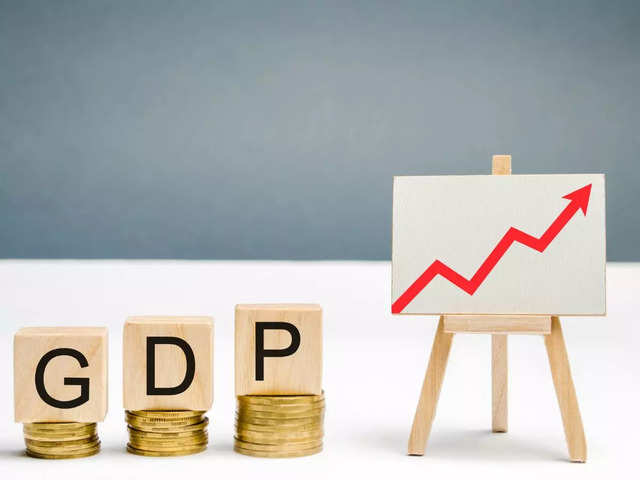
Abhishek Gupta, CMO, Edelweiss Tokio LifeEdelweiss Tokio Life
How brands are navigating the new normal
May 28, 2020, 15:11 IST
brands
Marketing in the times of Covid-19: Edelweiss Tokio Life Insurance
- In our latest interview series, we talk to brands to understand how they are coping with the new normal and their strategies towards navigating these difficult times.
Abhishek Gupta , CMO,Edelweiss Tokio Life helps us understand how theinsurance sector has been impacted and how the brand prepared itself to face these uncertain times.- He also tells us about his priorities as a marketer during times of crisis and his learnings from the experience so far.
Before the pandemic, buying insurance was largely dependent on face-to-face counsel from advisors and wasn’t really considered an absolutely necessary financial instrument. However, in the times since the outbreak, people have started recognizing the importance of insurance. People are recognising the importance of family and tilting towards safeguarding their aspirations.
While the overall industry has witnessed a slowdown, agile brands have been able to adapt to the changing times and needs and been able to stay afloat.
We recently spoke to Abhishek Gupta, CMO, Edelweiss Tokio Life to understand how the market has been impacted and how the brand prepared itself to face these uncertain times. He also tells us about his priorities as a marketer during times of crisis and how he’s tweaked the brand’s marketing strategy during the lockdown.
Excerpts:
Q) How has the lockdown period been for you so far? How have your consumers reacted?
The initial transition from office to work-from-home (WFH), now seems like a distant memory, as we step into Lockdown 4.0. As an organisation and a brand, we did not have to make any extraordinary changes to move to a seamless WFH. We had digitally transformed our processes and operational capabilities in recent years, which to a large extent, has facilitated an easy transition for us. Following the initial impact in March, which is a business-critical month for insurance, we found our footing in April and have sustained it since. Our APE has grown nearly 60% year-on-year in April as we have been able to re-orient ourselves and respond to evolving expectations of our stakeholders.
The lockdown experience has been disorienting for customers across sectors. We have proactively taken steps to counsel our customers and provide them access to authentic information. The pandemic has led to a significant shift in how customers perceive the insurance category. With risk to future cashflows and health uncertainties in focus, insurance has become far more important. Discretionary spending is at a standstill and customers are now looking at insurance as an avenue for long-term wealth creation to protect their dreams and aspirations.
Q) Has there been any interesting consumer behaviour trend you've noticed in the past few weeks?
Before the onset of Covid-19, insurance buying was largely dependent on face-to-face counsel from advisors and was not considered as a must-have financial instrument. The pandemic has changed both these paradigms. Given the magnitude of health risks we currently face, protection has become crucial and people are beginning to recognise that they need insurance to provide for their long-term goals. Also, the impact on current cashflows has elevated the importance of savings. So, customers are looking at insurance as a secure means for wealth accumulation and creation.
The pandemic has also significantly affected people’s emotional quotient. People have become much more cognisant of their social responsibility and we are seeing simple acts of kindness across geographies. People are recognising the importance of family and increasingly all consumption behaviour is tilting towards safeguarding their aspirations. Self-reliance is slowly becoming a habit now, considering social distancing is likely to continue in the near future.
Q) Insurance is one of the few sectors that hasn't been impacted due to the lockdown. Have you seen an increase in people buying life insurance policies?
The overall sector has experienced a considerable slowdown since the first lockdown was announced. But companies that have been agile and reinvented themselves quickly, have managed to stay buoyant. There is certainly an increased interest to buy insurance and that is reflecting across the board – be it with insurance companies, aggregators or brokers. As mentioned before, our APE has recorded a nearly 60% year on year growth in April, which reflects increased customer interest.
Q) While it would have been difficult for anyone to predict the current situation, how prepared were you as a brand to cope with the implications? How fast were you able to adapt to the new normal?
Over the last 2 years, we have accelerated our spends on digital platforms because our customers are present there and it is undoubtedly the new-age frontier. This gradual shift has augured well for us and helped us adapt to this new normal with relative ease. We have been able to focus on finding the right messaging and communication for our customers, instead of reinventing the wheel.
We have all been dazed by this unprecedented situation, and as a marketer that was our first area of focus in the initial period. It was crucial to offer the right counsel to our customers, and we made aggressive marketing efforts to support our salesforce on this front. Similarly, we as an organisation also setup a helpline to provide access to credible information, which in part helped manage concerns regarding this new normal.
We have established an online property called Login Zindagi. We have conducted 4 Facebook Live sessions so far, earning us a reach of over 90,000, over 24,000 views and about 13,500 engagements. We are still experimenting with the format and are trying to work with more platforms. For instance, instead of doing an FB Live, we had people pre-register for our recent session and received a massive response with over 13,000 viewers logging in and more than 2,000 viewers asking questions. While Login Zindagi started off as a limited series event, we are considering building it into a long-term initiative.
To adapt to the evolving changes in customer behaviour, we have kickstarted an initiative called DigiTools. It aims to make customer communication friendlier, personalised, and suitable for the current ecosystem, wherein information consumption on devices like mobiles has increased. It also facilitates our salesforce to interact with prospective customers, without taking away the ‘Do It Yourself’ or ‘self-reliance’ behaviour they have developed during this period. We are looking at building a long-term relationship with our customers, and initiatives like DigiTools will help us achieve that.
Q) What are a few things that a marketer should keep in mind while coming up with marketing communications during times of crisis?
As a marketer, here are the factors I consider in each communication that we create currently:
a) Does my communication align with my brand values? This is a good rule to follow at all time, but, is especially important during such disruptions. With the emergence of moment marketing, it is very tempting to steer away from what your brand stands for to garner temporary brand impact. But, going back to basics will always give you clarity of thought.
b) How can my communication be informative and mobilise people to support those in need? As a brand, we have a bigger responsibility right now to be socially responsible and be the conduit of authentic information for our stakeholders.
c) Is the communication relevant for my stakeholders? Your key stakeholders, especially customers, must be the focal point of your communication. What you say now will stay with them for a long time. So, use this as an opportunity to strengthen their trust and confidence in your brand.
d) Do I need to participate? This is a guiding principle that all marketers must use in the current scenario. You cannot risk being perceived as a brand trying to monetise a crisis. So, don’t speak up unless it is absolutely essential.
Q) What have your key learnings been so far?
Agility is paramount to facilitate quick problem-solving and easy innovation. We all need to have the foresight to recognise the merits and longevity of new-age platforms and stay ahead of the curve, in terms of adoption. Both these factors will help brands stay relevant in the long run.
Q) Do you expect things to pick up in the second half of the year? Will consumer sentiments change, or will people continue to be careful about their spending?
In the immediate future, I expect discretionary spending to take a backseat as customers will focus more on financial planning for future aspirations. While perception of term insurance has evolved in the recent years, I see customers proactively considering savings plans like guaranteed products, which offer a risk-averse wealth-creation model. In current times of reducing interest rates, wherein traditionally preferred savings instruments like FDs may offer significantly lower returns as compared to guaranteed products, insurance is likely to see a spurt in customer interest.
INSIDER INTELLIGENCE REPORTS







